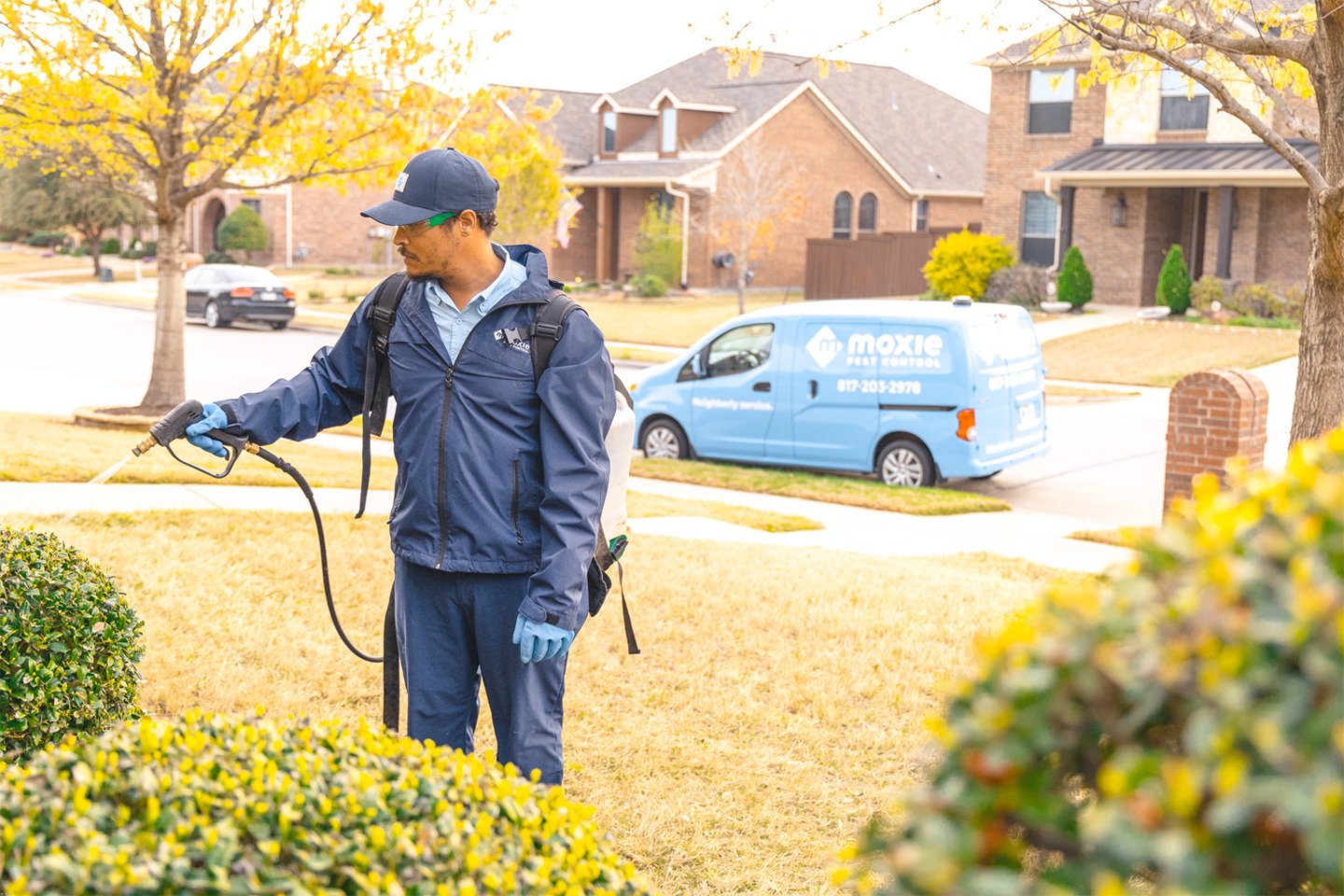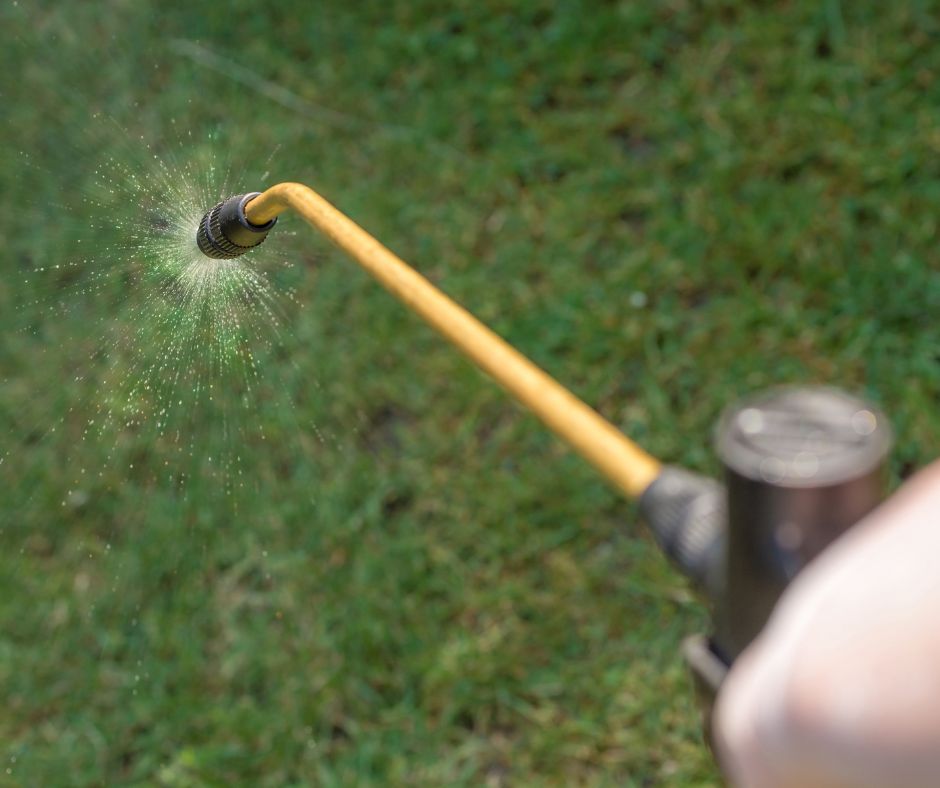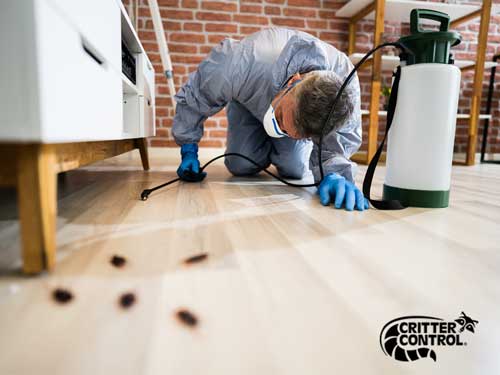How an Exterminator in Port Charlotte Can Safeguard Your Home from Pests
Discover the Relevance of Bug Control in Maintaining a Healthy And Balanced Atmosphere and Treatment Strategies

The Role of Bugs in Communities
Bugs, frequently viewed only as problems, play a diverse duty in communities that is essential for maintaining environmental equilibrium. They add significantly to different eco-friendly processes, including pollination, nutrition biking, and pest control. For circumstances, lots of insect species, such as bees and butterflies, are crucial pollinators for a variety of plants, which subsequently sustains biodiversity and food production.
In addition, insects work as target for countless predators, creating a vital web link in food internet. This interdependence makes sure the survival of different types and aids manage populaces within ecological communities (Termite treatment Port Charlotte). Decomposer insects, such as specific beetles and fungi, are instrumental in breaking down natural issue, therefore enhancing soil and assisting in vitamins and mineral recycling.
On the other hand, while bugs can be helpful, their overpopulation or invasion into non-native environments might interrupt these ecological features. This intricacy highlights the significance of understanding parasite characteristics, as efficient insect management techniques must take into consideration both their environmental roles and possible influence on human tasks. Balancing pest presence while decreasing damage is vital for preserving the honesty of environments and guaranteeing farming efficiency.
Wellness Dangers Linked With Bugs
The presence of bugs in various settings prolongs past their environmental roles, as they additionally posture considerable health threats to humans and animals. Numerous parasites, including bugs, bloodsuckers, and rodents, are providers of conditions that can have severe wellness implications. Rats are known to transfer hantavirus and leptospirosis, both of which can lead to extreme respiratory and renal problems, specifically.
Pests such as ticks and mosquitoes are notorious for spreading out vector-borne conditions like malaria, dengue fever, and Lyme illness. These illnesses can lead to high morbidity and death prices, specifically in susceptible populaces. In addition, parasites like bedbugs and cockroaches can worsen allergic reactions and bronchial asthma, adding to respiratory problems in individuals, especially those with pre-existing conditions.
Additionally, the existence of bugs can cause emotional stress and discomfort, impacting overall health. Contamination of food and surface areas by bug droppings and remains can bring about foodborne illnesses, highlighting the relevance of preserving sanitary conditions. Therefore, recognizing the wellness threats associated with bugs is critical in identifying the requirement of efficient insect monitoring approaches to secure animal and human health and wellness.

Advantages of Reliable Pest Control
Efficient pest control is important for preserving a secure and healthy setting, as it continually reduces the numerous threats connected with pest invasions. One of the primary advantages of effective bug administration is the reduction of health and wellness risks.
In addition, efficient parasite control safeguards building and structures from damages. Numerous parasites, like termites and carpenter ants, can create substantial structural damage that might call for expensive repairs. By proactively handling these home owners, infestations visit homepage and organizations can shield their financial investments.
One more substantial advantage is the enhancement of general high quality of life. A pest-free atmosphere adds to mental health and minimizes stress and anxiety related to infestations. Moreover, reliable parasite control cultivates a much safer atmosphere for animals and children, making sure that homes continue to be refuges free from hazardous chemicals and disease-causing organisms.
Common Parasite Control Strategies

In the realm of parasite administration, numerous methods are employed to deal with infestations properly. These techniques can be extensively categorized right into 3 primary strategies: cultural, mechanical, and chemical controls.
Social control involves changing practices to minimize insect survival, facility, and recreation. This might include plant turning, proper cleanliness, and environment manipulation, which jointly create an atmosphere much less conducive to pest expansion.
Mechanical control uses physical approaches to eliminate pests (Termite treatment Port Charlotte). Techniques such as vacuum cleaners, traps, and barriers are commonly utilized to directly eliminate insects from an area. This method is especially effective for managing rodents and pests without using hazardous chemicals
Chemical control involves the fire ants application of pesticides to take care of parasites. These materials can be classified into fungicides, herbicides, and insecticides, each targeting specific kinds of parasites. It is critical to make use of these chemicals carefully, adhering to safety standards and laws to lessen prospective harm to non-target types and the atmosphere.
Each parasite control strategy has its restrictions and advantages, and commonly, an integrated approach integrating multiple approaches yields the best lead to preserving a pest-free setting.
Lasting Insect Monitoring Practices
Sustainable pest monitoring practices incorporate a series of strategies made to reduce ecological effect while effectively regulating pest populaces. These practices focus on making use of ecologically friendly techniques over chemical pesticides, thereby minimizing the risk of damage to non-target varieties, these details including useful pests, wildlife, and human beings.
Integrated Parasite Management (IPM) is a keystone of lasting practices, integrating organic, cultural, mechanical, and chemical techniques to take care of pests. Biological control includes presenting all-natural predators or parasites to reduce bug populaces. Cultural methods, such as plant turning and polyculture, disrupt pest life cycles and improve ecological community resilience.
Mechanical techniques, such as catches or obstacles, can successfully protect against pest access without chemical intervention. Furthermore, preserving healthy and balanced ecosystems through proper soil management, plant health, and biodiversity can naturally alleviate bug concerns.
Education and learning and recognition are essential parts, encouraging people and areas to recognize insect hazards early and implement preventive measures. Termite treatment Port Charlotte. By fostering a holistic approach that stabilizes bug control with environmental integrity, sustainable parasite monitoring methods not only protect structures and crops but additionally add to a healthier environment for future generations
Verdict

Comprehending the health threats connected with pests is critical in acknowledging the necessity of reliable bug management approaches to protect animal and human health and wellness.
Efficient pest control is necessary for maintaining a healthy and balanced and risk-free environment, as it continually reduces the countless risks connected with pest invasions.Integrated Pest Administration (IPM) is a cornerstone of sustainable techniques, combining biological, social, mechanical, and chemical tactics to take care of bugs. By understanding the role of bugs, identifying involved health and wellness threats, and employing diverse therapy strategies, a lasting strategy to pest monitoring can be achieved. Integrated Insect Administration (IPM) emphasizes an all natural methodology that minimizes harm to valuable microorganisms while effectively managing bug populaces.